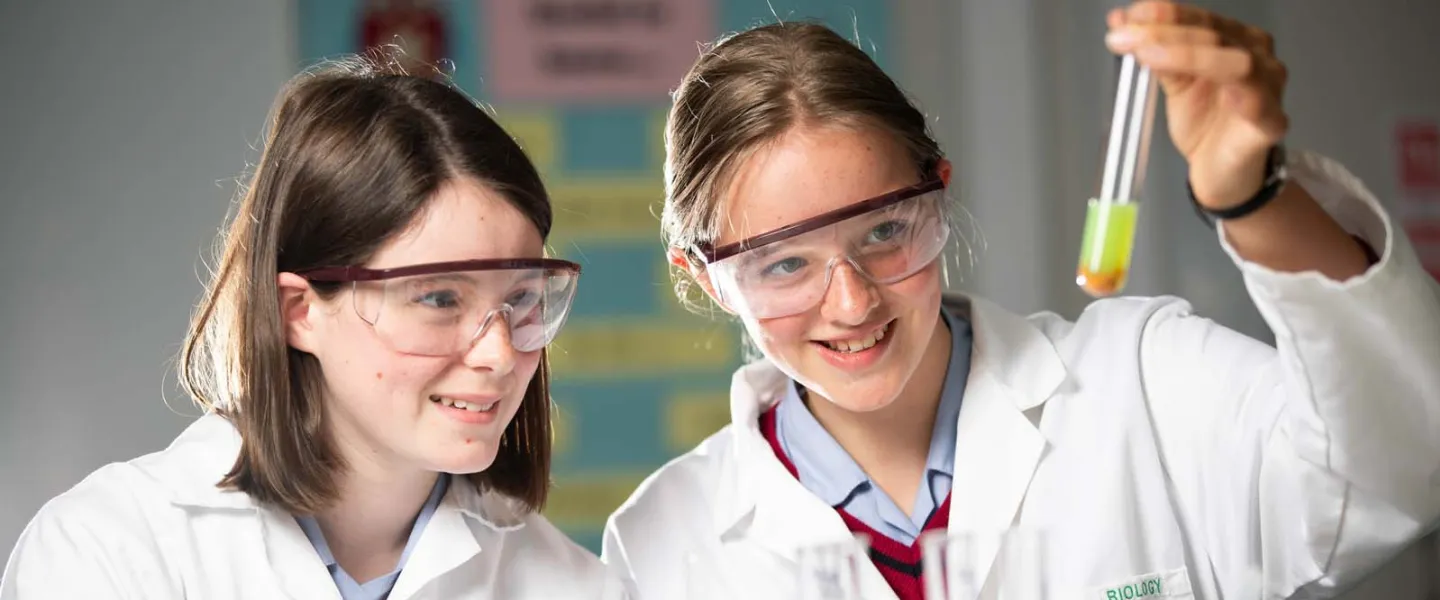A-level Chemistry attempts to answer the big question ‘what is the world made of’ and it’s the search for this answer that makes this subject so fascinating. We are constantly surrounded by chemistry and chemical reactions, without which we would cease to exist; from the air that we breathe and the food that we eat to the clothes we wear and fuels we use. It is a fascinating and enthralling subject that unravels the mysteries of why reactions occur and how we can use and manipulate these reactions to benefit mankind.
A-level Chemistry is divided into distinct areas of study in the form of organic chemistry; the study of products from crude oil, and inorganic chemistry which looks at the patterns and trends of reactions and physical chemistry which is more mathematically based.
Two members of staff are allocated to each group and 10 one hour-long lessons are provided every fortnight. In addition, comprehensive support is offered in lunchtime sessions for pupils that need extra help.
Students study the AQA specification which is assessed at the end of year 13 when pupils will take three, two hour examinations. Paper one examines physical and inorganic chemistry. Paper 2 examines physical and organic chemistry. Paper 3 examines all content. Chemistry, like all sciences, is a practical subject. Throughout the course you will carry out a variety of practical’s to demonstrate theories and develop experimental skills. Teacher assessment of 12 required practical activities will lead to the practical endorsement. Questions will be asked on all the written papers about the practical techniques and procedures encountered during the course.
You could continue to study chemistry at degree level—either broadly or specialising in one area. Students studying A-level chemistry frequently go on to study degrees in chemistry, biology, pre-clinical medicine, dentistry, pharmacology and veterinary science. As a challenging A-level, you will need a grade 7 or above at GCSE chemistry (or 7-7 for double award science) to be accepted on the course. As there is a significant mathematics content in the specification a grade 7 at GCSE mathematics is required.
“Nothing in life is to be feared, it is only to be understood. Now is the time to understand more, so that we may fear less”.
Marie Curie
